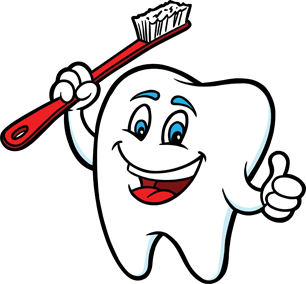Restorative Dentistry
At Western New York Dental Group, our highly-trained team of dental professionals provides a wide range of restorative dental services. We repair functional structures of the mouth affecting chewing, speaking and maintaining a relaxed and aligned bite.
Restorative dentistry addresses a wide range of problems, including:
- Broken, chipped or cracked teeth
- Missing teeth
- Infected or damaged teeth or gums
- Deteriorating or damaged tissue
A dental filling is the repair of the crown of a natural tooth. It replaces the portion of the tooth that is missing or unstable due to tooth decay or fracture. Amalgam and composite fillings both have advantages and disadvantages. The type of filling your dentist may recommend typically depends on the situation and your priorities.
- Composite fillings are white fillings designed to match the color of your teeth and are bonded into place. Composite fillings are more natural-looking than traditional silver fillings.
- Amalgam fillings are traditional silver fillings. They offer similar benefits as composite fillings, but are generally used on back teeth where they will be less visible. Silver fillings have strength and durability which is critical on back teeth where chewing forces are greatest.
A crown fits over a tooth like a cap to restore it to its normal shape and size. In essence, it “resurfaces” and rebuilds the tooth. Crowns are often used when a tooth has lost its strength and structural integrity due to a larger cavity, fracture or excessive fillings. Crowns are used to restore teeth, attach a bridge, protect a weak tooth, restore fractured teeth, cover poorly shaped or colored teeth, and/or cover dental implants. Crowns are custom-made in a dental laboratory based on an impression made of your tooth. They are typically made out of a metal alloy, porcelain or a combination of the two. You and your dentist will determine the optimal approach based on the position of the tooth and other factors.
A bridge—also known as a fixed partial denture—replaces or spans the space where one or more teeth are missing. Similar to crowns, bridges prevent your teeth from shifting and close open spaces with a natural-looking artificial tooth. This reduces the stresses from your bite by replacing the missing tooth and helps maintain the shape of your face. Bridges come in both fixed and removable options. Your dentist can discuss the advantages and disadvantages of each.
Periodontal disease, also called gum disease, is a bacterial infection of the gums and bones that hold the teeth in place. Gum disease can affect patients of all ages, and even the healthiest of smiles can be at risk. Gingivitis is the initial stage of this disease, and, if treated at this stage, gum disease can often be prevented and reversed. However, if left untreated, gum disease can cause tooth loss and unsightly changes to the soft tissues around the teeth. The good news is that gum disease is relatively easy to prevent by maintaining proper dental hygiene (brushing and flossing) and making regular dental visits.
Learn MoreRoot canals are typically needed when an untreated cavity progresses rapidly and spreads to the pulp of the tooth. The tooth pulp is made up of blood vessels, connective tissues and nerves. Once the bacteria of decay have reached the tooth pulp, it can be extremely painful. If your dentist determines that a root canal is the best solution for you, the procedure can typically be done with minimal discomfort and keeps you from losing the tooth.
Learn MoreDental implants are changing the way people live and are often the best option for people who have experienced tooth loss. They are the closest thing to natural teeth that modern dental technology has to offer. They are a desirable alternative to dentures as these are “permanent teeth” that look, feel and function similar to natural teeth. Dental implants are tiny titanium posts that are surgically placed into the jawbone where teeth are missing. The posts act as tooth root substitutes and, within three to six months, the bone bonds with the titanium to create a strong foundation for artificial teeth. If you are considering dental implants, give us a call and we will thoroughly examine your mouth and dental records to determine if they are a good option.
Learn More






























